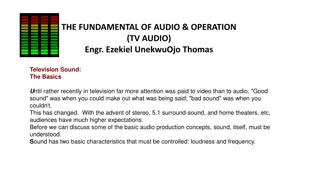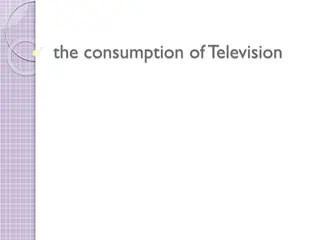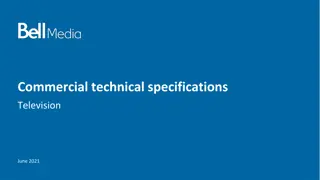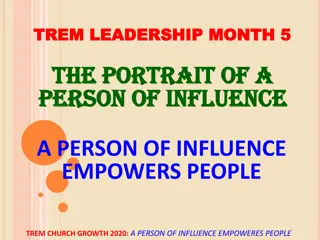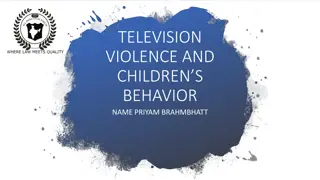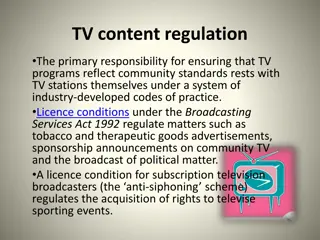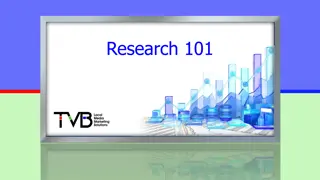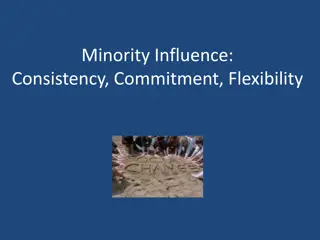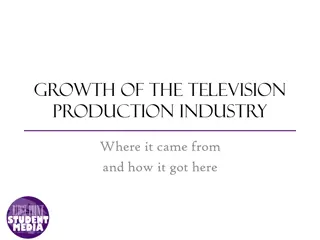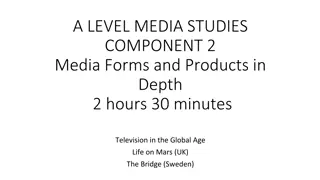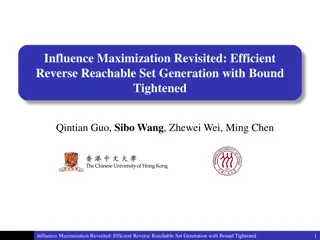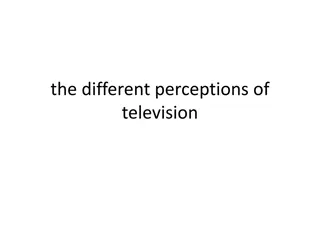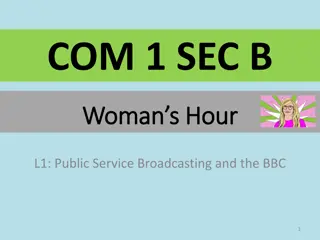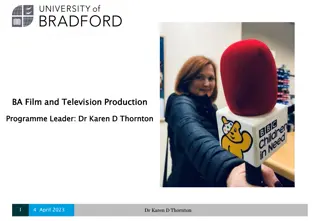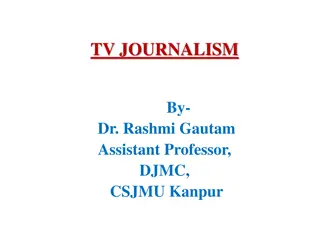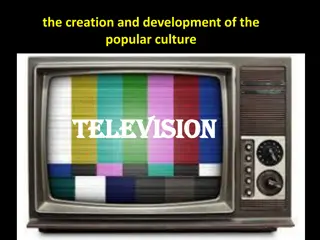The Influence of Media on Public Perception of Crime in Criminal Justice
Influence of the media on public opinion in criminal justice is significant. Media constructs crime narratives, shaping how people perceive causes of crime. Programs like CSI influence juror expectations on evidence, potentially affecting trial outcomes. The evolution towards ethics in journalism un
2 views • 27 slides
Understanding Mass Media and Communication for the Academic Year 2020/2021
This content delves into the science of media, communication, and mass communication for the academic year 2020/2021. It explores the role of mass media in public communication, the characteristics of mass media, and the various types of mass media such as books, print media, films, radio, televisio
8 views • 11 slides
Global Concerns: Climate Change, Inequality, and Influence on Government
Climate change and inequality are identified as top global concerns, with a link to government influence and favoritism highlighted. The connection between people's worries worldwide showcases a concerning asymmetrical influence that relates to issues like waste in government spending and vested int
4 views • 22 slides
Essential Lighting Techniques in Television Production
Lighting is a vital aspect of television production, setting the mood and enhancing the overall broadcast quality. Key lighting illuminates the subject, fill lighting reduces shadows, backlighting adds depth, side lighting creates drama, rim lighting highlights the subject, and mood lighting sets th
3 views • 9 slides
The Impact of Reality Television on Society
Reality television, where fact is sometimes stranger than fiction, has a significant influence on society. This form of entertainment often showcases ordinary people in various scenarios, leading to desensitization and acceptance of negative behaviors like aggression and bullying. The ethical implic
7 views • 17 slides
Family Dynamics: The Power of Connection and Influence
Explore the profound impact of familial relationships on shaping individuals through the lens of loyalty, love, and influence. Dive into the intricate bonds between siblings and parents, showcasing how family connections guide decisions, shape morality, and inspire growth. Witness how the themes of
0 views • 10 slides
An Introduction to British Media: Overview of Print and Digital Platforms
This content provides an insightful overview of the British media landscape, focusing on newspapers, television, radio, and social media. It discusses the distinctions between tabloids and broadsheets, highlighting the influence of British media on social and political views. Key characteristics of
1 views • 43 slides
Understanding Simonson & Rosen's Influence Mix for Effective Marketing Strategies
Simonson & Rosen's Influence Mix provides a framework to analyze the impact of social media on purchasing decisions. Prior Preferences, Information from Marketers, and Input from Other People are key factors influencing customer decisions. Benefits of each factor are outlined, along with guidance on
1 views • 4 slides
Understanding Free Consent and its Components in Indian Contract Law
Free consent in Indian contract law refers to consent that is not influenced by coercion, undue influence, fraud, misrepresentation, or mistake. Coercion involves committing or threatening to commit acts forbidden by the Indian Penal Code to force someone into an agreement. Undue influence occurs wh
1 views • 13 slides
Understanding Television Commercial Production Process
Television commercials (TVCs) play a crucial role in advertising, promoting products, services, and ideas to a wide audience through television broadcast. This comprehensive guide covers the definition of TVCs, their objectives, steps in the production process (pre-production, production, post-produ
3 views • 34 slides
Understanding Leadership and Change Management in Organizations
Leadership is not defined solely by position, but as a choice to influence and inspire others towards a common goal. This chapter delves into the essence of leadership, highlighting its behavioral approach, social influence, and importance in organizational success. It discusses the functions of man
2 views • 22 slides
Magnetic Force and Acceleration of Electrons in Television Picture Tubes
An electron in a television picture tube is analyzed as it moves towards the front of the tube in a magnetic field. The magnetic force and acceleration of the electron are calculated, along with determining the linear speed of a proton moving in a circular orbit under a magnetic field. Additionally,
0 views • 6 slides
Understanding Audio Basics in Television Operations
Until recently, television focused more on video than audio. However, with advancements like stereo and surround sound, audience expectations have risen. This article delves into the fundamental characteristics of sound – loudness and frequency – and explores the various decibel levels in differ
6 views • 33 slides
The Impact of Popular Culture on Social Change Through Television
Popular culture, as portrayed through television, holds the power to influence societal norms, intercultural understanding, and global awareness. While it can promote positive social change and awareness, there are concerns about cultural imperialism, excessive TV consumption, and the cultivation th
0 views • 15 slides
Roles and Responsibilities of Radio and Television Announcers
Radio and television announcers play a vital role in presenting program information, news, sports, and commercials to audiences both on and off the air. They read scripts, conduct interviews, moderate discussions, and engage with the community. Announcers at smaller stations often have additional du
0 views • 18 slides
The Relationship Between Mythology, Heroes, and Television Consumption
The consumption of television is prevalent across all demographics, connecting diverse audiences to a shared experience. By examining the influence of heroes and mythology on television content, we uncover how characters embody societal ideals and values. Through storytelling, television programs su
3 views • 18 slides
Commercial Technical Specifications for Television Channels - June 2021
This document details the technical specifications and application guidelines for content suppliers delivering material to various television channels under Bell Media. It includes information on traffic communication, parameters, electronic file delivery, and commercial instructions. Suppliers must
1 views • 12 slides
The Impact of Civil Rights Movement and President Eisenhower's Legacy
Explore the significant events like the Civil Rights Movement, the popular presidency of Dwight D. Eisenhower, the Federal Aid Highway Act of 1956, the Baby Boom Years, and the advent of television in the lives of Americans during the mid-20th century. Learn about civil rights, segregation, the Brow
3 views • 24 slides
Empowering Others: The Key to Leadership and Influence
Empowering others is a crucial aspect of leadership and influence. By trusting, delegating, and supporting individuals, a person of influence can help them reach their full potential both personally and professionally. Jesus empowered his disciples as an example of effective leadership. This process
0 views • 7 slides
Impact of Television Violence on Children's Behavior
Television violence has a significant influence on children's behavior as they may become desensitized to violence and even mimic what they see on TV. Parents need to monitor and limit their children's TV viewing, engage in discussions, and block inappropriate content to protect them from negative e
0 views • 15 slides
Television Content Regulation in Australia
Television content regulation in Australia is overseen by industry-developed codes of practice and specific licence conditions under the Broadcasting Services Act 1992. TV stations hold the primary responsibility to ensure that programs reflect community standards. Regulations cover areas such as to
0 views • 12 slides
Understanding Television Research: Markets, Measurement, and Methodologies
Explore the world of television research through topics such as television markets, measurement approaches, local measurement services like Nielsen and Comscore, and Nielsen's measurement methodologies. Learn about Designated Market Areas (DMAs), Household Demographics, People Meters, Portable Peopl
0 views • 42 slides
Understanding Undue Influence in Legal Contexts
Exploring the nuanced concept of undue influence in legal matters, this content delves into the distinctions between suspicious circumstances and undue influence. It touches on the factors considered in determining undue influence, such as control, dominance, fear, vulnerability, and indicia of infl
0 views • 13 slides
Importance of Programming Diversity in Television Broadcasting
Diversity of programming in television is crucial for democracy and meeting the varied needs of audiences. The content emphasizes the significance of quality, independent programming that reflects a spectrum of opinions to inform the public effectively. It also discusses the impact of TV content on
0 views • 13 slides
Understanding Minority Influence: Consistency, Commitment, and Flexibility
Minority influence involves a small group of people persuading others to adopt their beliefs, attitudes, or behaviors, leading to internalization and social change. Consistency plays a vital role in exerting influence, as it encourages others to rethink their own views. Commitment, demonstrated by l
0 views • 15 slides
Evolution of Television Production Industry and Communication Technologies
The growth of the television production industry is traced from early forms of communication such as drumbeats and smoke signals to the invention of the telegraph by Cooke and Wheatstone in 1830. The development of Morse code and wireless telegraphy by Guglielmo Marconi in 1899 revolutionized commun
0 views • 23 slides
Analysis of Genre Elements in Life on Mars and The Bridge
Television series like Life on Mars (UK) and The Bridge (Sweden) exemplify various genre theories and narrative structures. From discussing social, cultural, economic, and political factors affecting production to exploring media language and Neale's Genre Theory, these shows showcase how genres osc
0 views • 13 slides
Efficient Reverse Reachable Set Generation for Influence Maximization
This research revisits the influence maximization problem, focusing on efficiently generating reverse reachable sets with tightened bounds. The Independent Cascade (IC) model is explored along with existing solutions based on Random Reverse Reachable Set. The concept of RR sets and their significanc
0 views • 17 slides
Unlocking Multi-Faceted Network Influence Challenges
Exploring the complexities of social influence in maximizing network impact, addressing assumptions in influence maximization works, and real-world campaign dynamics. Delve into quantifying adoption processes with diverse messaging for enhanced influence outcomes.
0 views • 24 slides
Understanding Broadcast Television and Radio: A Comprehensive Course Overview
This course delves into the history, contemporary forms, and impact of broadcast television and radio, exploring academic approaches, traditions, and critical orientations in the field. Students will analyze ownership structures, audience dynamics, regulatory frameworks, and content production in na
0 views • 7 slides
The Importance of Pre-Production in Television Program Production
The process of producing a television program is divided into three stages: Pre-Production, Production, and Post-Production. Pre-Production is vital as it involves setting goals, planning, and decision-making, which ultimately lead to smoother production and editing processes. Planning saves time, e
0 views • 17 slides
Understanding Different Perceptions and Resistance to Television
Television plays a significant role in Australian lives, with resistance stemming from factors like content and over-commercialization. Some resist due to concerns about cultural identity, while others reject television altogether. Acceptance of television is evident through its widespread use as a
0 views • 16 slides
Future of ITU-D Study Question 8/1 Report Analysis
This report delves into the impact of terrestrial television broadcasting coexisting with telecommunication services, focusing on the transition to digital terrestrial television. It covers strategies for analogue switch-off, spectrum planning, and digital dividend use. The report also includes case
0 views • 16 slides
Insights into BBC's Public Service Broadcasting and Mission & Values
An examination of the British Broadcasting Corporation (BBC) focusing on its public service broadcasting role, history, remits, mission, and values. The content discusses the BBC's commitment to educate, inform, entertain, and its importance in providing impartial news, supporting learning, and deli
0 views • 11 slides
Gender Equity Policies in Film and Television Analysis Interview
Explore the evolution of gender equity in the film and television industries of Canada, Germany, and the UK over the past decade. Dive into the success, challenges, and potential interventions for enhancing gender equity. Uncover expert insights on the industry's commitment to gender equality and ra
0 views • 17 slides
BA Film and Television Production Program at University of Bradford
Explore the BA Film and Television Production program led by Dr. Karen D. Thornton at the University of Bradford. Gain valuable skills in a nurturing environment, work with industry professionals, and be part of a diverse community. Prepare for a career in the creative industries with hands-on exper
0 views • 9 slides
Understanding Rural Advertising: Media and Strategies
Rural advertising in India targets a population of over 1250 million, with a significant portion residing in rural areas. Marketers blend traditional and conventional media to reach the rural masses through word of mouth, puppetry, posters, TV, radio, and more. Strategies include utilizing tradition
0 views • 18 slides
TV Camera Shots and Functions in Television Productions
Explore the fascinating world of television camera shots and functions, including how the camera emulates the human eye, different movements of the camera and lens, and the various techniques used in television production to create dynamic visuals. From zooming in and out to panning and tilting, lea
0 views • 13 slides
Evolution and Development of Television Journalism
Television journalism has evolved over the years, with pioneers like John Baird and the BBC leading the way. The transition from black and white broadcasts to color marked a significant milestone. In India, television started as an experiment in 1959 and gradually expanded to reach a wider audience.
0 views • 8 slides
The Evolution of Television: From Baird's Invention to Modern Broadcasting
Television has evolved from its humble beginnings with John Logie Baird's invention to become an integral part of modern life, offering entertainment, advertising, and diverse programming. The journey of television includes significant milestones such as the demonstration of color television, transa
0 views • 30 slides












